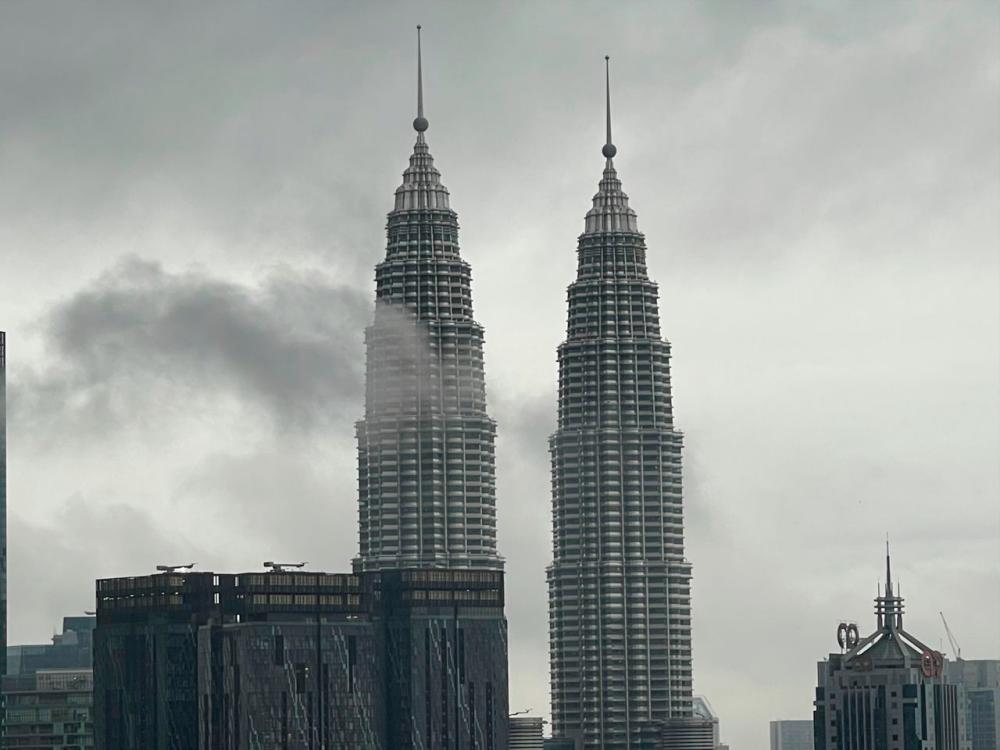MALAYSIANS should ask why former international trade and industry minister Datuk Seri Mohamed Azmin Ali surreptitiously ratified the Comprehensive and Progressive Agreement for Trans-Pacific Partnership (CPTPP) days before the 15th general election, without parliamentary – let alone public – discussion despite his earlier ministerial promise to consult relevant parties.
Hidden costs
The high legal costs of its investor-state dispute settlement (ISDS) provisions need to be emphasised, even when governments win against powerful transnational corporations with deep pockets.
The US’ official reason for withdrawing from the Trans-Pacific Partnership (TPP) was ISDS.
Although it had never lost an ISDS case up to that point, the US considered this a major threat, especially after former US president Barack Obama cancelled a major pipeline construction project awarded to a Canadian company.
Yet, Malaysian CPTPP lobbyists claim ISDS is not a problem. Any experienced contract lawyer knows how vulnerable any government is, especially developing countries, without deep fiscal pockets to bear legal costs.
Even Australia insisted on a tobacco “carve out” (exception) for the TPP after its costly experience fighting US tobacco company Philip Morris all the way to the Australian Supreme Court.
Perhaps the International Trade and Industry Ministry (Miti) does not consider it a problem as it does not pay the legal bills – often running into tens, if not hundreds, of millions of ringgit – even when the government wins against the corporate plaintiff.
Lower corporate income and other tax rates in other CPTPP jurisdictions are another big problem.
Why would any large company want to be registered and pay taxes in Malaysia if it offers no advantage but is more costly in terms of tax liability?
Meanwhile, governments everywhere are trying to increase revenue, especially from wealth, corporate income and windfall taxes, in the face of rising interest rates, economic stagnation and greater fiscal deficits following Covid-19 pandemic measures.
The tax rate “race to the bottom”, promoted by the CPTPP is over.
Exaggerating trade gains
While there will undoubtedly be some increased exports with any free trade agreement (FTA), these have been greatly exaggerated by TPP, and now CPTPP lobbyists, as several studies have shown.
But there is much less attention given to increased imports in most supposed trade projections, which may result in greater net trade deficits.
Only FTA lobbyists claim that everybody can simultaneously increase exports, but not imports.
For Malaysia, current projections suggest we will probably import much more Japanese cars and plastic waste from others, thanks to former premier Datuk Seri Najib Razak’s earlier waste processing initiative.
But about 85% of plastic waste is not commercially recycled, and hence dumped into landfills in Malaysia.
Supposed World Bank projections promoting the CPTPP were actually done by economists originally hired by the Peterson Institute of International Economics (PIIE) in Washington DC, which accepts funding from lobbyists.
Incredibly, their study claims more gains without US participation although the US economy accounted for two-thirds of the TPP area from an economic point of view.
“More (gains) from less (trade)” surely deserves an award for economic fiction.
Even the official US International Trade Council (ITC) doubted the PIIE’s TPP projections and found our sceptical 2016 research paper (by Jere Capaldo, Alex Izurieta and Jomo KS) much more credible and robust.
For Vietnam and Malaysia, access to the US market was the main attraction of the TPP.
Surely, the gains from joining the CPTPP, without the US, should be considerably less, even before considering the costs.
Also, 85% of the PIIE’s supposed economic gains from the TPP were from non-trade measures, mainly investments, not trade liberalisation.
The CPTPP lobbyists should also stop pretending that the alleged gains projected are from trade liberalisation.
More importantly, they need to clearly show where their anticipated economic investment boom is going to come from.
Former US president Donald Trump’s and the late former Japanese prime minister Shinzo Abe’s efforts to “reshore” US and Japanese foreign direct investment in China largely failed.
Instead, Malaysia is now benefiting from diverted “friendshoring” interest from the two anti-China allies.
But China is the major trading partner of not only Malaysia but all of Asean. It is also a major investor in our country.
It would therefore be quite foolish and myopic to join either camp in the emerging new Cold War.
Economic agreements are political
The damning ITC report of mid-2016 forced Hillary Clinton to do a political U-turn and reject the TPP in the 2016 US presidential campaign after proposing and advocating the agreement earlier as part of the Obama cabinet.
As a recent IDEAS study, financed by Taiwan’s office in Kuala Lumpur, implicitly acknowledges, the TPP was, and the CPTPP is, about “containing” China, as Obama made very clear when he first suggested it as part of his “pivot to Asia”.
After China expressed interest in joining the CPTPP, Japan and Australia objected on political, not economic, grounds.
For the CPTPP, the views of the Finance Ministry and Wisma Putra are really more important than those of Miti.
When the previous Miti minister had a different portfolio in Tun Dr Mahathir Mohamad’s administration, a study he commissioned cautioned against joining the CPTPP.
So, one might well ask if the rushed ratification is Azmin’s poisoned chalice for the new government.
One might also ask who was responsible for releasing and circulating a purported endorsement of CPTPP ratification by the new prime minister.
Jomo Kwame Sundaram, a former economics professor, was the United Nations assistant secretary-general for economic development. He is the recipient of the Wassily Leontief Prize for Advancing the Frontiers of Economic Thought. Comments: letters@thesundaily.com








![Herzi Halevi, Chief of General Staff of the Israeli army near Ben Gurion Airport in Lod on March 9, 2023 [GIL COHEN-MAGEN/AFP via Getty Images] Herzi Halevi, Chief of General Staff of the Israeli army near Ben Gurion Airport in Lod on March 9, 2023 [GIL COHEN-MAGEN/AFP via Getty Images]](http://thesun.my/binrepository/768x510/0c19/768d432/none/11808/BKOB/gettyimages-1247941914-e1685004542239_4912469_20250121223538.jpg)
